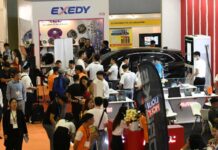
Ms Shradha Suri, MD of Subros Limited, is candid enough to admit that gender diversity is an area for improvement for her company but this, she says, is because gender disparity in engineering profession is a challenge in our education system itself. However, the leading manufacturer of thermal products for automotive applications offers many special incentives for its women employees. According to her, though there is a marked change in the automotive industry’s focus on gender diversity, it is still behind other industries. Women remain largely an underutilised resource in the sector and they continue to be vastly under-represented in leadership roles, said Ms Suri in response to a set of questions sent by Autoguide.
The following is the text of the Q&A:
Question: What is the proportion of women workforce in your company? Does it offer some special incentives to women employees? Any specific women-friendly initiatives it has undertaken?
Answer: Gender disparity has long been an issue in the engineering profession. This is the key reason that women ratio in auto component space is low. Many engineering schools have established outreach programmes aimed at attracting more young women. Gender diversity is an important area for improvement for us also. Over the last four-five years, there is significant and conscious focus on creating a balance in the organisation. In this regard, we have some special incentives for our women employees. Maternity programme for expected mothers, sabbaticals, and special leaves to attend to family needs are some such policies in place. During COVID-19 pandemic, we granted hundred per cent work-from-home for our women employees.
Q: How serious the auto industry is with regard to gender diversity? Is the recent increase in women workforce mere tokenism?
A: Over last few years, there has been a marked change in the automotive industry’s focus on gender diversity. As I mentioned before, gender disparity in engineering profession is key challenge in our education system itself. Diversity and inclusion have become critical. However, auto industry is behind other industries in gender diversity. Women remain largely an underutilised resource in the sector. They continue to be vastly under-represented in leadership roles. Auto companies need to ramp up their efforts on the career advancement of women employees, otherwise their numbers will be mere tokenism.
Q: Why are there fewer women in top managerial positions in auto companies? Is it because of the dearth of talent or skewed mindset?
A: I don’t think it is because of dearth of talent. Women are playing significant role in top managerial positions in industries at large. The comparison is not by gender at all. There are other reasons such as, negative perceptions about the workplace environment in auto industry, a perceived lack of work/life balance, and a lack of flexibility in work schedules. These are all myths in today’s work dynamic. I do not believe these to be the key reasons. The auto industry has made considerable strides in improving gender diversity over last few years, there has been less emphasis on career progression of women to top managerial position. Since the inception of this industry, there is a general bias toward men in leadership positions. I firmly believe that is changing dramatically now. In coming times, there will be more representation of women in top managerial positions. People have begun to recognise the skills and expertise that a woman brings on table.
Q: With shop floor operations becoming more and more digital, do you think it’s time to employ women in core manufacturing?
A: Currently, women have a very limited representation in shop floor operations. Major challenge is recruitment, as there is dearth of women resources with skills for roles for such processes. This is because very few women students opt for core engineering branches due to negative perceptions, as I already mentioned. Now with industry focus on 4.0, digitisation and automation will be future of shop floor operations. Again, availability of skilled women resources will be a key for inclusion. Partnership of Industry and education sector will be the key in developing the right curriculum and improving enrollment of women for such courses.
Q: Do you think hygiene and healthcare factors are adequately addressed by the industry? Does it follow family-oriented policies, particularly in regard to women employees?
A: Hygiene, healthcare, and safety of employees are of paramount importance in the auto industry. Organisations have policies and procedures in place to meet these objectives and they do follow family-oriented policies for women employees. In fact, the manufacturing industry incorporated concepts of 5S decades ago.
Q: Lastly, what specific steps would you suggest the industry should take to become more women-friendly, more inclusive?
A: Automotive is a dynamic and exciting industry that will undergo wide disruption and rapid progression in next decade. These times will be challenging and gender diversity in workplace will be an important asset. I believe the auto industry needs to focus on three key areas, recruitment, retention, and opportunity for women. It is imminent to weed out biases that discourage women from joining in, and making the culture more conducive for women, especially laying emphasis on safety. Policies and procedures should be established to strengthen their careers through learning and growth opportunities. Facilitating them in drawing up their career maps with mentorships to help them speed ahead in the direction they want to head– that is the future of this industry.









